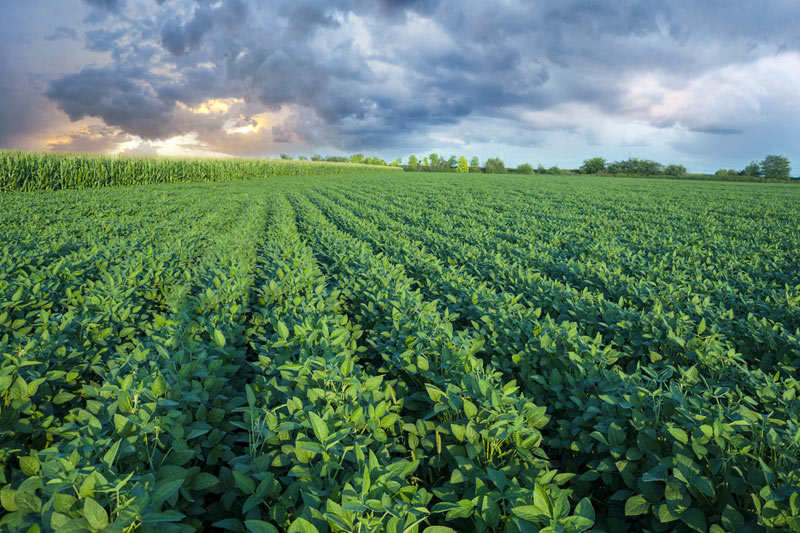Investing.com - U.S. soybean futures fell to a one-week low on Wednesday, as optimism over the outlook for supplies in Brazil and Argentina drove down prices.
On the Chicago Mercantile Exchange, US soybeans for May delivery hit a session low of $9.7013 a bushel, the weakest level since March 31, before trading at $9.7163 during U.S. morning hours, up 0.42 cents, or 0.04%.
A day earlier, soybean prices slumped 7.4 cents, or 0.77%, to close at $9.7100.
Brazil and Argentina are major soybean exporters and compete with the U.S. for business on the global market. Large South American crop prospects could weigh on demand for U.S. supplies.
Elsewhere on the Chicago Board of Trade, US wheat for May delivery dipped 0.57 cents, or 0.11%, to trade at $5.2563 a bushel. On Tuesday, wheat shed 1.6 cents, or 0.33%, to settle at $5.2600 as forecasts for much-needed rainfall in the U.S. grain belt eased concerns over the health of the winter-wheat crop.
The U.S. Department of Agriculture said Monday that the U.S. winter wheat crop was rated 44% good to excellent, compared to 35% in the same week a year earlier. The five-year average for the first week in April is 47%.
Meanwhile, US corn for May delivery inched up 0.03 cents, or 0.01%, to trade at $3.8363 a bushel. Corn declined 2.0 cents, or 0.52%, on Tuesday to end at $3.8300 amid indications of ample supplies.
The USDA said last week that U.S. corn inventories on March 1 totaled 7.745 billion bushels, 11% higher than last year.
The agency also projected U.S. farmers would plant 89.199 million acres with corn in 2015, surpassing forecasts for 88.735 million but down from 90.597 million in 2014.
Corn is the biggest U.S. crop, followed by soybeans, government figures show. Wheat was fourth, behind hay.
